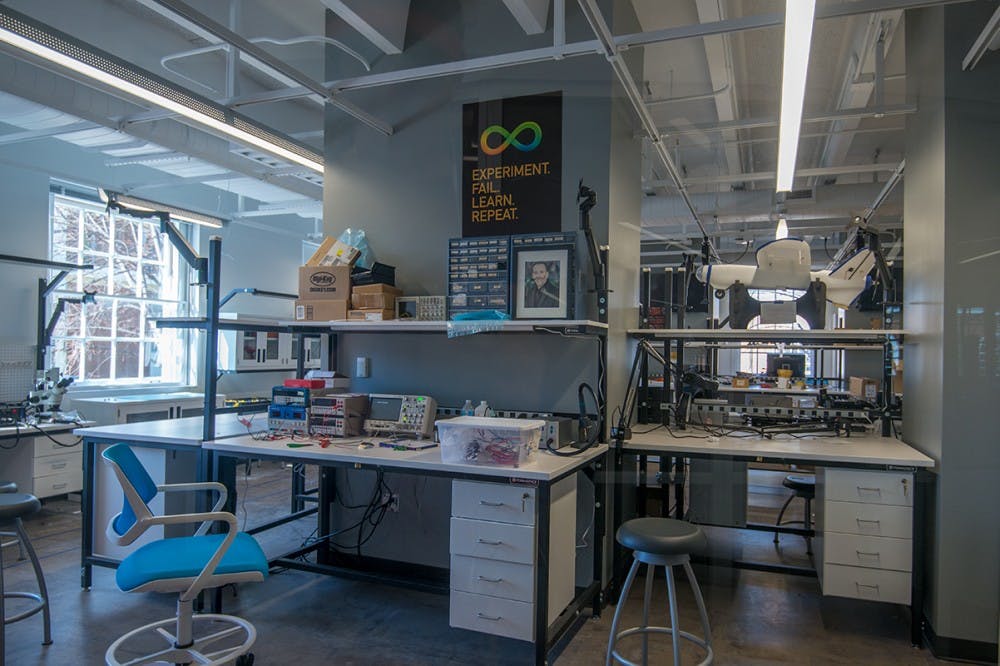The School of Engineering and Applied Science opened its Link Lab Feb. 22 in hope of propelling the University to a premier position in the field of cyber-physical systems (CPS). Located on the top floor of Olsson Hall, the lab aims to research and develop systems that link the physical world with cyber components, in areas like autonomous cars and smart buildings.
The University took on this initiative in October 2015 with the total cost of renovation exceeding $4 million.
A type of engineering system, CPS integrates both physical and computational components. This system is usually designed as a network of interacting elements with physical input, such as detecting vehicles on a highway, and output, like preventing car crashes.
According to Craig Benson, Dean of the Engineering School, CPS will be an innovative part of the future.
“Just look around the world and around you,” Benson said. “The whole future — our economy and our lives — is cyber-physical systems, or the connection between the physical world and computing.”
Developing a smart home — a residence that uses internet-connected devices to enable the monitoring and management of appliances and systems — is one of the many technological innovations CPS attempts to tackle. For example, a sensor can detect the number of people in the home and change the system for comfort and energy conservation in ways such as adjusting the thermostat.
Another area that CPS is working on is in automated automobiles.
“The car propels itself down the road safely without you having to drive it, and it’s measuring everything about its surroundings,” Benson said. “[It’s] collecting data, processing that data through computing, and making decisions about trajectory and climate conditions all automatically.”
According to Benson, the advancements that CPS will bring about will also change the social and institutional components of society. For one, the demand for the workforce could change, in which a factory may now need highly skilled vocational people requiring more education and more responsibility than they do today.
In order to make the University a national leader in this innovative field, the Engineering School decided to construct the Link Lab. The lab has faculty from five different engineering departments along with their students. John Stankovic, director of Link Lab, hopes that the lab will inspire a new wave of Engineering students and serve as a center for CPS.
“[The goal of the lab is to enable] state of the art research in the cyber-physical world with three new systems — autonomous, smart cities and intelligent health — while also retraining engineers to integrate the cyber and physical world with software,” Stankovic said.
The lab also was created to foster more collaboration among different disciplinaries working in similar areas, allowing the university to better evolve in the cyber-physical systems field.
“It was essential to create an ecosystem around this area of technology and education that is emerging so that we could integrate the diversity of the faculty and we could compete better,” Benson said.
The Link Lab is based on the idea that people in closer proximity are more likely to collaborate. The theory behind this is that it is easier to collaborate with others when they are physically near one another, as people can be brought together more quickly. The University is unique in this regard as most other universities are organized in a disciplinary system, where different labs of the same field work individually.
The Link Lab also hopes to educate students to become leaders in the cyber physical world. Plans for developing a Master’s program in CPS is currently underway. Additionally, the lab offers courses in civil and environmental engineering, computer science and electrical and computer engineering.
“This is going to drive our future and hopefully serve as a model for the University about how to integrate collaboration in research,” Benson said.







